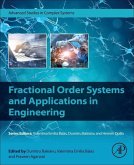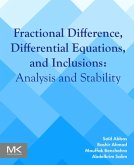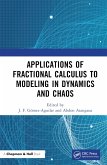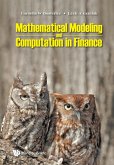Computation and Modeling for Fractional Order Systems provides readers with problem-solving techniques for obtaining exact and/or approximate solutions of governing equations arising in fractional dynamical systems presented using various analytical, semi-analytical, and numerical methods. Various analytical/semi-analytical/numerical methods are applied for solving real-life fractional order problems. The comprehensive descriptions of different recently developed fractional singular, non-singular, fractal-fractional, and discrete fractional operators, along with computationally efficient methods, are included for the reader to understand how these may be applied to real-world systems, and a wide variety of dynamical systems such as deterministic, stochastic, continuous, and discrete are addressed. Fractional calculus has gained increasing popularity and relevance over the last few decades, due to its well-established applications in various fields of science and engineering. It deals with the differential and integral operators with non-integral powers. Fractional differential equations are the pillar of various systems occurring in a wide range of science and engineering disciplines, namely physics, chemical engineering, mathematical biology, financial mathematics, structural mechanics, control theory, circuit analysis, and biomechanics, among others.
Hinweis: Dieser Artikel kann nur an eine deutsche Lieferadresse ausgeliefert werden.
Hinweis: Dieser Artikel kann nur an eine deutsche Lieferadresse ausgeliefert werden.








